production
/viewbook/list/all/?page=27
/
/static/
None
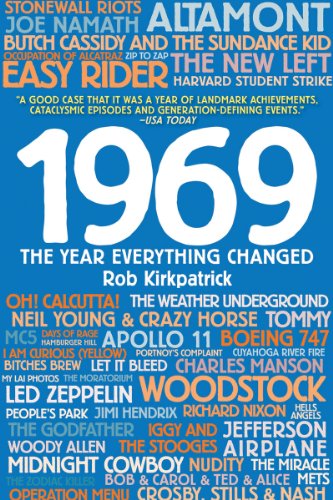
1969: The Year Everything Changed
Rob Kirkpatrick
Skyhorse Publishing
Not available
1616080558
“Kirkpatrick makes a good case that 1969 was a year of landmark achievements, cataclysmic episodes and generation-defining events.”—USA TodayIn... 1969, man landed on the moon; the “Miracle Mets” captivated sports fans; students took over college campuses and demonstrators battled police; America witnessed the Woodstock music festival; Hollywood produced Easy Rider; Kurt Vonnegut published Slaughterhouse-Five; punk music was born; and there was murder at Altamont Speedway. Compelling, timely, and a blast to read, 1969 chronicles the year in culture and society, sports, music, film, politics, and technology. This rich, comprehensive history is perfect for those who survived 1969 or for those who simply want to feel as though they did.
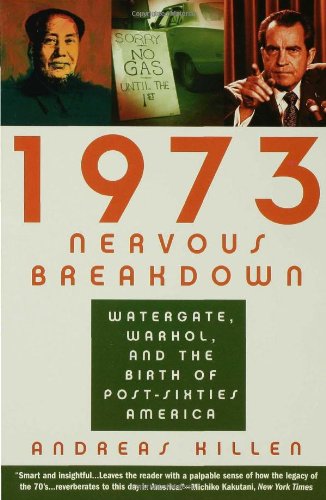
1973 Nervous Breakdown: Watergate, Warhol, and the Birth of...
Andreas Killen
Bloomsbury USA
Not available
1596910607
1973 marked the end of the 1960s and the birth of a new cultural sensibility. A year of shattering political crisis, 1973 was defined by defeat in... Vietnam, Roe v. Wade, the oil crisis and the Watergate hearings. It was also a year of remarkable creative ferment. From landmark movies such as The Exorcist, Mean Streets, and American Graffiti to seminal books such as Fear of Flying and Gravity's Rainbow, from the proto-punk band the New York Dolls to the first ever reality TV show, The American Family, the cultural artifacts of the year reveal a nation in the middle of a serious identity crisis. 1973 Nervous Breakdown offers a fever chart of a year of uncertainty and change, a year in which post-war prosperity crumbled and modernism gave way to postmodernism in a lively and revelatory analysis of one of the most important periods in the second half of the 20th century.
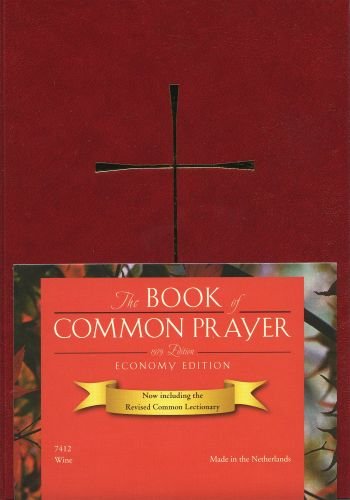
1979 Book of Common Prayer Economy Edition, imitation leather wine...
Oxford University Press
Oxford University Press, USA
Not available
0195287762
The Oxford Book of Common Prayer, Economy Edition is a beautifully constructed and reasonably-priced prayer book, making it a perfect choice for wide... distribution in schools and for use as a pew prayer book.All Oxford Prayer Books are bound with the same attention to detail and commitment to quality that have made Oxford Bibles famous the world over. The Economy Edition includes the Revised Common Lectionary and covers are embossed with an elegant gold cross.Well-constructed, compact, yet comprehensive, this prayer book is an inexpensive and cherished resource for Episcopalians everywhere.
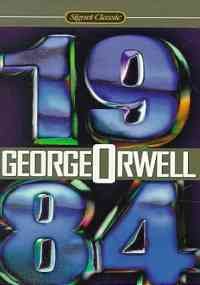
1984
George; Fromm, Erich Orwell
Signet Classic
Not available
0451524934
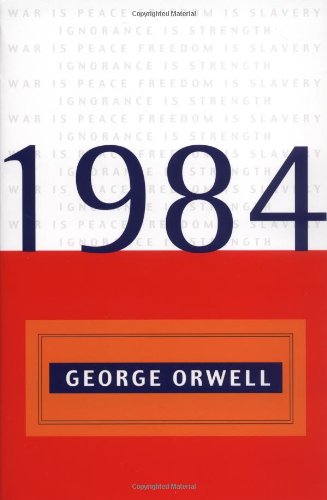
1984: 60th-Anniversary Edition (Plume)
George Orwell
Plume
Not available
0452262933
View our feature on George Orwell’s 1984. Written in 1948, 1984 was George Orwell's chilling prophecy about the future. And while 1984 has come and... gone, Orwell's narrative is more timely that ever. 1984 presents a "negative utopia," that is at once a startling and haunting vision of the world—so powerful that it is completely convincing from start to finish. No one can deny the power of this novel, its hold on the imaginations of entire generations of readers, or the resiliency of its admonitions—a legacy that seems to grow, not lessen, with the passage of time.
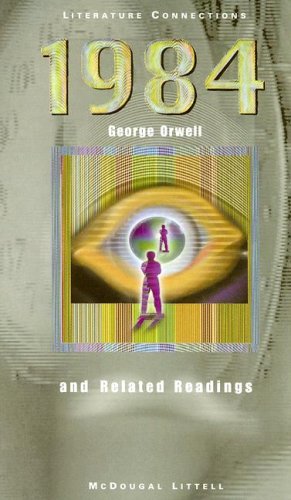
1984: And Related Readings (Literature Connections)
George Orwell
MCDOUGAL LITTEL
Not available
0395874718
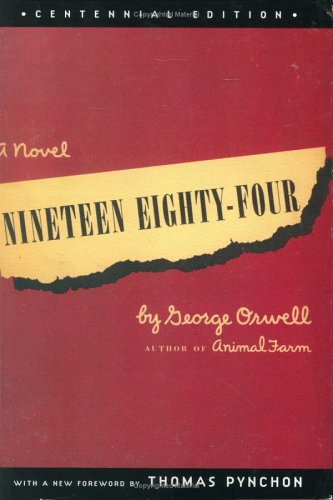
1984: Centennial Edition
George Orwell
Plume
Not available
0452284236
"Thought Police." "Big Brother." "Orwellian." These words have entered our vocabulary because of George Orwell's classic dystopian novel, 1984. The... story of one man's nightmare odyssey as he pursues a forbidden love affair through a world ruled by warring states and a power structure that controls not only information but also individual thought and memory, 1984 is a prophetic, haunting tale. More relevant than ever before, 1984 exposes the worst crimes imaginable-the destruction of truth, freedom, and individuality. With a new forward by Thomas Pynchon.
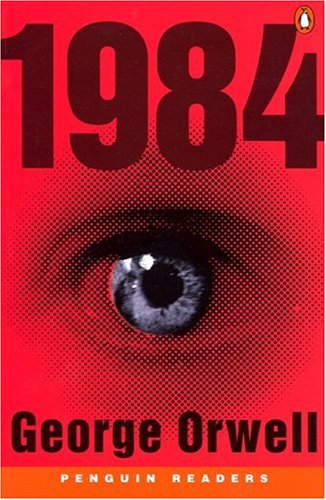
1984, Level 4, Penguin Readers (Penguin Readers: Level 4)
George Orwell
Pearson ESL
Not available
0582777313
Orwell's classic novel tells the story of a world where thoughts and actions are controlled by the all-seeing Big Brother. When Winston Smith rebels and... searches for the truth he learns a painful lesson about his world and the people in it. Also a powerful film directed by Michael Radford.
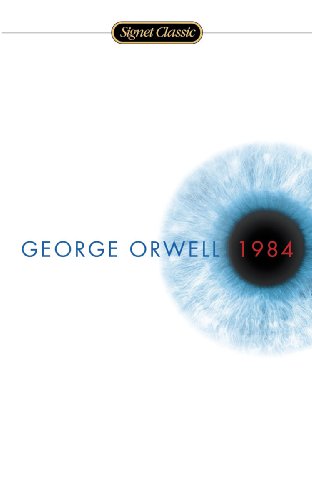
1984 (Turtleback School & Library Binding Edition) (Signet...
George Orwell
Turtleback
Not available
0881030368
FOR USE IN SCHOOLS AND LIBRARIES ONLY. The great modern classic of negative utopia portrays life in a future in which a totalitarian government watches... over all citizens and directs all activities.
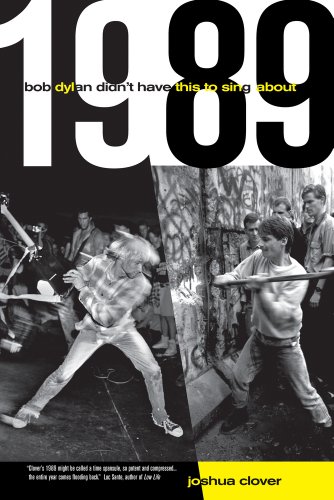
1989: Bob Dylan Didn't Have This to Sing About
Joshua Clover
University of California Press
Not available
0520267877
In a tour de force of lyrical theory, Joshua Clover boldly reimagines how we understand both pop music and its social context in a vibrant exploration... of a year famously described as "the end of history." Amid the historic overturnings of 1989, including the fall of the Berlin Wall, pop music also experienced striking changes. Vividly conjuring cultural sensations and events, Clover tracks the emergence of seemingly disconnected phenomena--from grunge to acid house to gangsta rap--asking if "perhaps pop had been biding its time until 1989 came along to make sense of its sensibility." His analysis deftly moves among varied artists and genres including Public Enemy, N.W.A., Dr. Dre, De La Soul, The KLF, Nine Inch Nails, Nirvana, U2, Jesus Jones, the Scorpions, George Michael, Madonna, Roxette, and others. This elegantly written work, deliberately mirroring history as dialectical and ongoing, summons forth a new understanding of how "history had come out to meet pop as something more than a fairytale, or something less. A truth, a way of being."
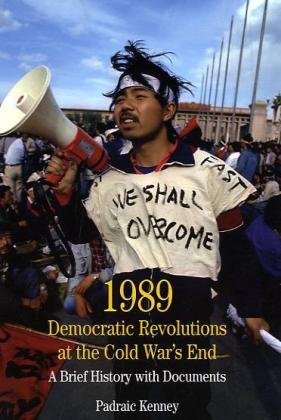
1989: Democratic Revolutions at the Cold War's End: A Brief History...
Padraic Kenney
Bedford/St. Martin's
Not available
0312487665
A series of democratic transformations in the 1980s ended the cold war and ushered in the present era. This volume by Padraic Kenney uses six case... studies from this period — Poland, the Philippines, Chile, South Africa, Ukraine, and China — to explore common characteristics of global political change while highlighting the differing strategies and perspectives of the people who sought to free themselves from dictatorship. A general introduction to the volume examines key trends in the decades leading up to the changes, tracing the paths that dictatorships and opposition movements took in their fateful confrontations. The first chapter with documents surveys the central ideas of this age of democratic, nonviolent revolution, and sets a framework for considering the case studies in the chapters that follow. The documents in each case study give voice to celebrated and uncelebrated participants alike — from Nelson Mandela and Mikhail Gorbachev to Chinese hunger strikers and an ordinary Filipino activist — and provide students with an opportunity to compare histories. Photographs, document headnotes, a chronology, questions to consider, and a selected bibliography aid students’ understanding of this transformative period.
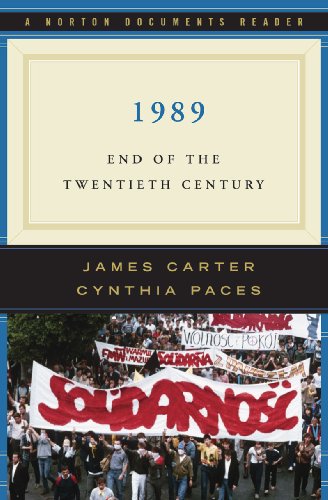
1989: End of the Twentieth Century (Norton Documents Reader)
James Carter
W. W. Norton & Company
Not available
0393930661
1989: End of the Twentieth Century offers a comparative look at one of the most eventful years in world history.Nineteen eighty-nine marked the end of... the Cold War, the fall of the Berlin Wall, the end of apartheid, and the "Beijing Spring" protests in Tiananmen Square. This engaging reader focuses on critical questions like "Why was the world caught by surprise by these events?" and "Why did the revolutions in Eastern Europe and in South Africa end in jubilation, while the protests in China ended in tragedy?" The original essay and the rich collection of documents in this volume explore both the long-term trends an the immediate causes that led to this series of events in 1989 that changed the world forever.

1989 Medical Microbiology (Jawetz, Melnick, & Adelberg's...
Ernest Jawetz
Appleton & Lange
Not available
0838584241
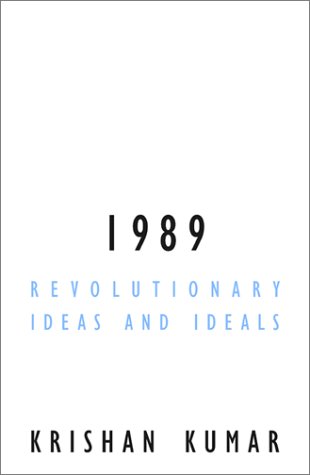
1989: Revolutionary Ideas and Ideals (Contradictions of Modernity)
Krishan Kumar
Univ Of Minnesota Press
Not available
081663453X
In 1989, from East Berlin to Budapest and Bucharest to Moscow, communism was falling. The walls were coming down and the world was being changed in ways... that seemed entirely new. The conflict of ideas and ideals that began with the French Revolution of 1789 culminated in these revolutions, which raised the prospects of the "return to Europe" of East and Central European nations, the "restarting of their history," even, for some, the "end of history." What such assertions and aspirations meant, and what the larger events that inspired them mean-not just for the world of history and politics, but for our very understanding of that world-are the questions Krishan Kumar explores in 1989. A well-known and widely respected scholar, Kumar places these revolutions of 1989 in the broadest framework of political and social thought, helping us see how certain ideas, traditions, and ideological developments influenced or accompanied these movements-and how they might continue to play out. Asking questions about some of the central dilemmas facing modern society in the new century, Kumar offers critical insight into how these questions might be answered and how political, social, and historical ideas and ideals can shape our destiny. Krishan Kumar is professor of sociology at the University of Virginia. Contradictions Series, volume 12
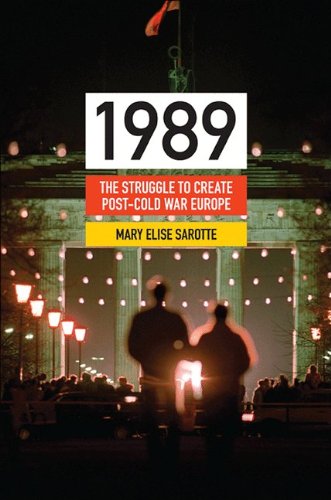
1989: The Struggle to Create Post-Cold War Europe (Princeton...
Mary Elise Sarotte
Princeton University Press
Not available
0691152411
There are unique periods in history when a single year witnesses the total transformation of international relations. The year 1989 was one such... crucial watershed. This book uses previously unavailable sources to explore the momentous events following the fall of the Berlin Wall twenty years ago and the effects they have had on our world ever since. Based on documents, interviews, and television broadcasts from many different locations, including Moscow, Berlin, Bonn, Paris, London, and Washington, 1989 describes how Germany unified, NATO expansion began, and Russia got left on the periphery of the new Europe. Mary Sarotte explains that while it was clear past a certain point that the Soviet Bloc would crumble, there was nothing inevitable about what would follow. A wide array of political players--from leaders like Mikhail Gorbachev, Helmut Kohl, George H. W. Bush, and James Baker, to organizations like NATO and the European Community, to courageous individual dissidents--all proposed courses of action and models for the future. In front of global television cameras, a competition ensued, ultimately won by those who wanted to ensure that the "new" order looked very much like the old. Sarotte explores how the aftermath of this fateful victory, and Russian resentment of it, continue to shape world politics today. Presenting diverse perspectives from the political elite as well as ordinary citizens, 1989 is compelling reading for anyone who cares about international relations past, present, or future.
 '
'





